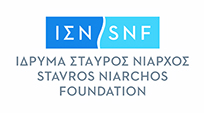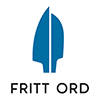
BRUSSELS – A journalist and a photographer from Belgium have spent several years to document the migrants on their way to the EU and inside the EU. There is no fortress Europe, they conclude – it is rather a sandcastle. Because “you cannot secure a continent against newcomers”. Right now the EU is paying Libya millions of Euros to keep refugees from the promised European coasts of the Mediterranean. How can journalists cover the question appropriately?
For a year and a day this subject has occupied the minds of writer Michael De Cock and photographer Stephan Vanfleteren. Frequently together, sometimes on their own, they visited the furthest outposts of Europe – Malta, Slovakia... They talked to people on the coasts of Africa who were all ready to emigrate, and they followed the fortunes of those venturing from Ostend to London.
Stephan Vanfleteren, an award winning Belgian photographer, and Michael De Cock, a theatre director and writer from Mechelen north of Brussels, did yearlong work to trace the immigrants and follow their arrival and their moves in illegality.
A photographer and a theatre director unite to do a job that traditionally would have been done by journalists. They observe people on the move in n search of a better life. “Europe is bursting at the seams with new citizens,” it says in one of their statements. “The old continent is struggling with the immigration phenomenon; and handling it with amazing ineptitude. The question is not: who is welcome and who is not? The question has to be: how are we to accommodate all these newcomers?”
The two have produced a book, Aller/Retour, which has been published in Dutch and is currently translated to English. The team decided to get the work done not via traditional media but with the help of a research grant by the Belgian Pascal Decroos Fund and in the format of a book.
Following up on the provoking thought by Ides Debruyne about the emancipated journalist, the project of Vanfleteren and De Cock appears to be an obvious example: They consider the subject essential, they decide to cover it, and they find the means to do so in a thorough way.
In the meantime the entire question sandcastle vs fortress is pressing itself upon us. If essentiality still is one of the journalistic criteria, this certainly is a story, we, European journalists, should cover intensely.
Danish researchers (to take some examples from my own country) have been looking into the outsourcing of border control. Or about the sovereignity blame-game in the Mediterranean. Or about the growing number of unaccompanied children fleeing from war-zones.
Enough to do for journalists.
Written by Brigitte Alfter








